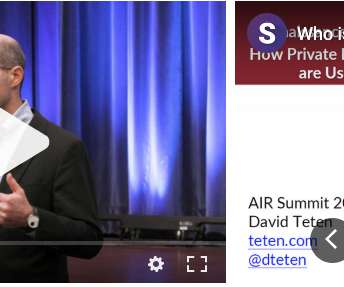Is a Venture Studio Right for You?
Steve Blank
JANUARY 17, 2023
Venture Studios are an “idea factory” with their own employees searching for product/market fit and a repeatable and scalable business model. But these look for founders who have a technical or business model insight and a team. They do the most to de-risk the early stages of a startup. How Venture Studios Work.





















Let's personalize your content